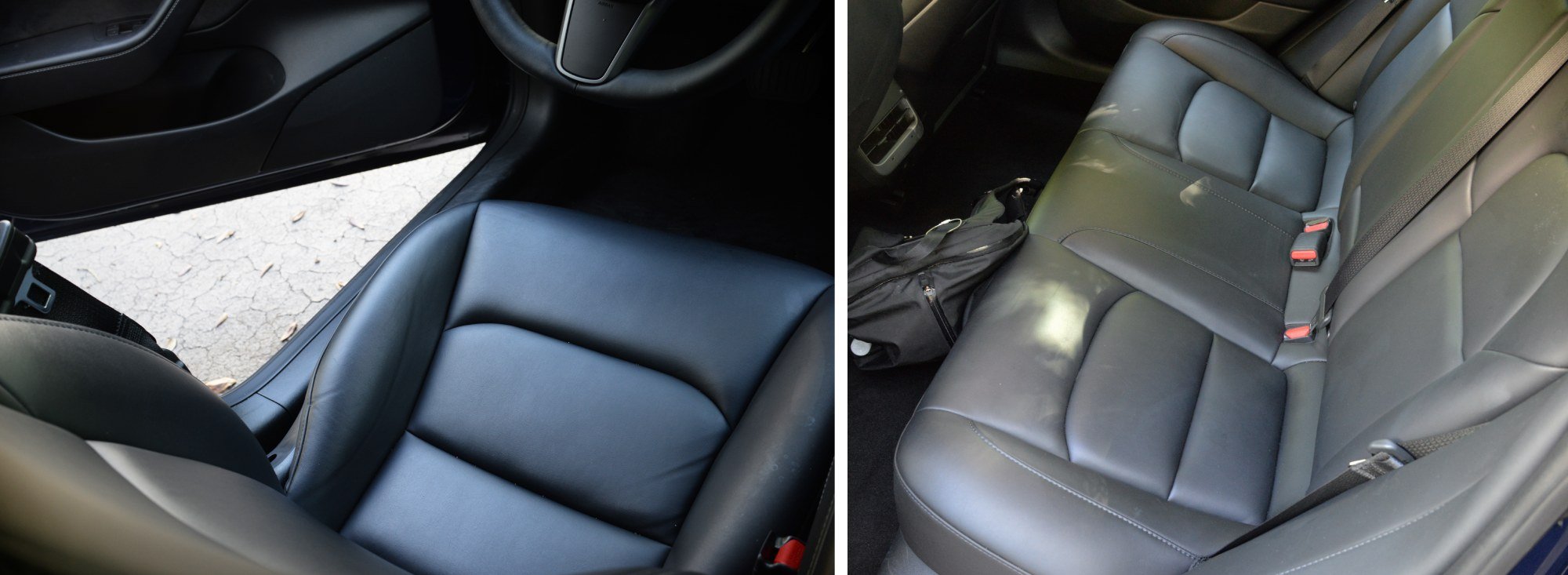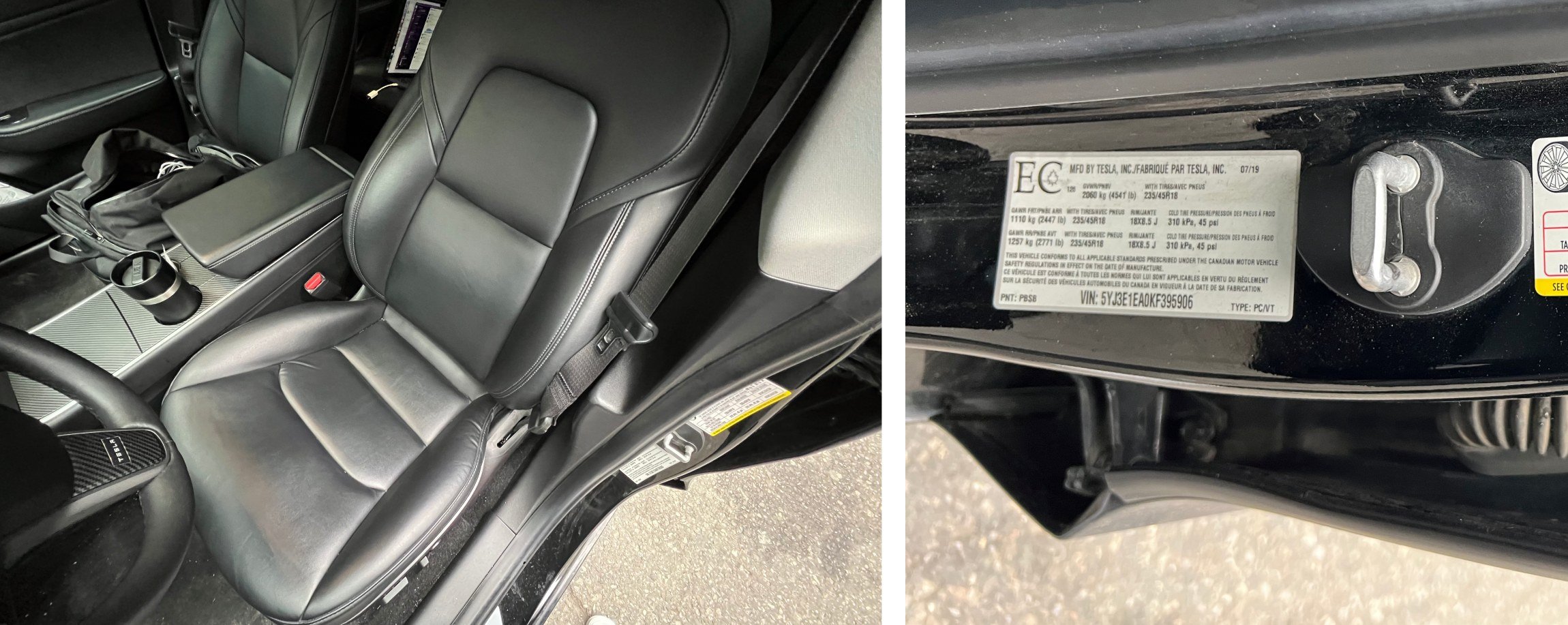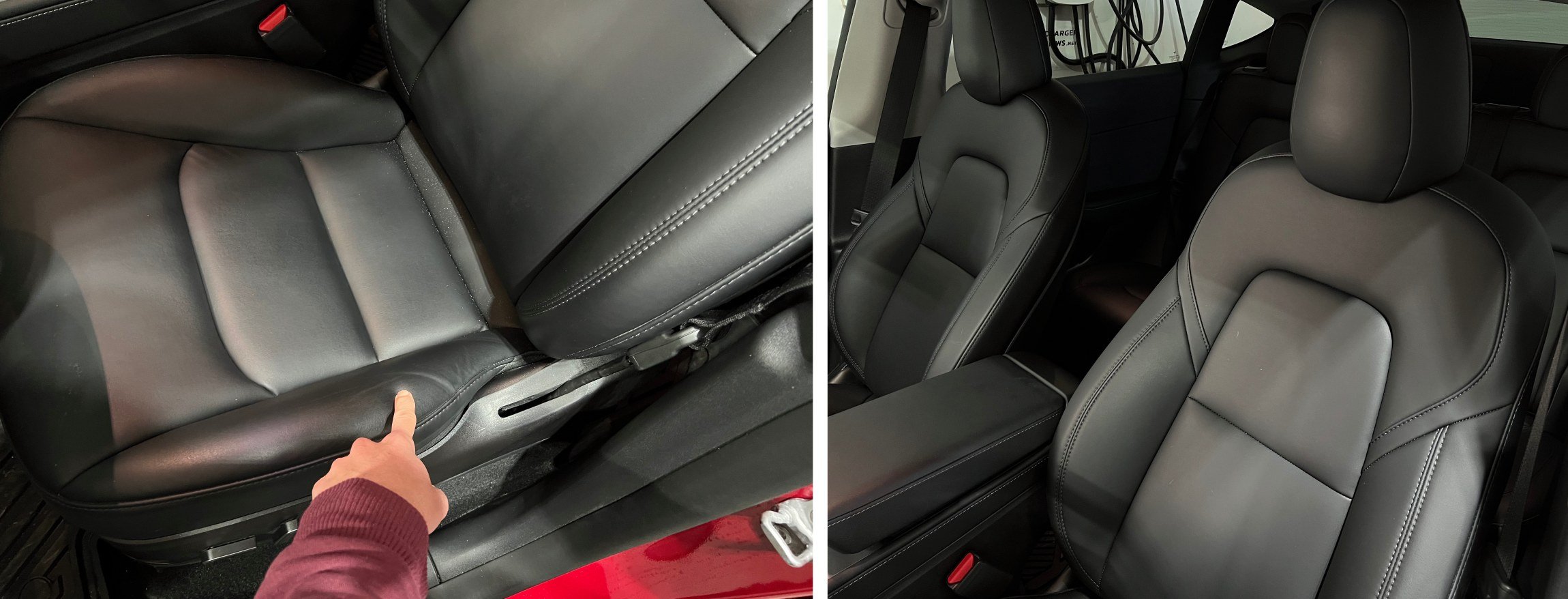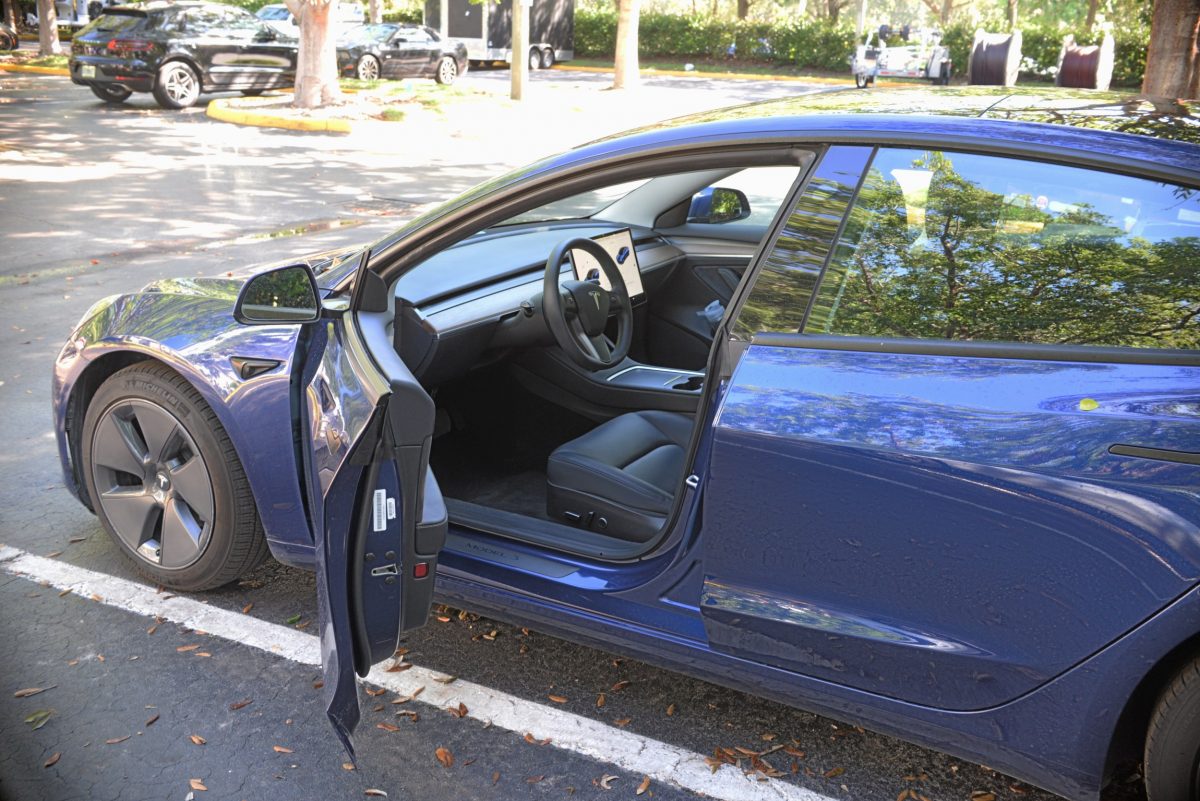You can’t claim to accelerate the transition to sustainable transportation while shipping millions of cars with traditional cow leather, now can you? That is why every Tesla used synthetic animal-free “leather” since 2017 when they really began to scale their car production to new heights. Tesla’s seats are often praised for their above-average levels of comfort, and ease of cleaning and maintenance (even the white ones). But we wanted to know; how do Tesla seats hold up to years of use and abuse?
Example 1: 2022 Model 3 LR with 18,000 miles

This is a fairly fresh Florida car from Hertz’s rental fleet. While it’s only two years old, the driver’s seat of this Model 3 sees a lot of daily action from drivers of all sizes. While the seat backs are perfectly fine, the seat bottom is forming small creases, especially on the side bolsters. This leads me to believe that Tesla seats are durable enough to support people in motion, but wear and tear can develop on the sides of the seats when people are entering/exiting the vehicle and applying weight to the side bolsters.
Example 2: 2019 Model 3 SR Plus with 80,000 miles

Here is a five year old example with significant mileage accumulation. This Model 3 SR Plus is part of Tesla’s service loaner fleet. While this car’s interior noise levels and vibrations are starting to show how much Tesla’s build quality has improved over the years, the seats are surprisingly fresh. There are small creases on the bottom cushion and the side bolsters that people’s butts slide over during entry/exit. Otherwise, these seats look and feel not that different from cars rolling off the assembly line. The only hint that these are several years old is that the driver’s seat is kind of shiny from picking up oils. But this is something that can be remedied with regular wipe-downs with a damp cloth or gentle cleaning products.
Example 3: 2022 Model Y LR with 14,000 miles

This is my personal 2022 Model Y that I drive a few times a week. This car is about a year and a half old and the odometer is at 14k miles. Just like previous examples, the seat material is holding up very well, but creases and folds have begun to appear on the bottom seat bolster that is nearest to the door. (Note that the opposite side is perfectly fine) This is more likely to be an issue on the Model Y and X because the seats are positioned higher off the ground, so the driver is more likely to slide across the seat on entry/exit than on Tesla sedans. If you would like to avoid seat creases in the long term, I suggest avoiding placing your entire body weight on the seat sides. This issue is not specific to Tesla’s synthetic leather seats but may spoil the look of an otherwise perfectly durable seat.
Recommend Cleaning & Maintenance for Tesla Seats
Tesla’s documentation recommends regular cleaning of seats with a soft cloth that is made damp with warm water and a gently non-detergent soap. This helps preserve the like-new appearance and long-term durability of the materials. Avoid using cleaning products containing alcohol and bleach at all costs, and if using any chemical cleaner, test on a small sport before wiping down the entire seat surface.

